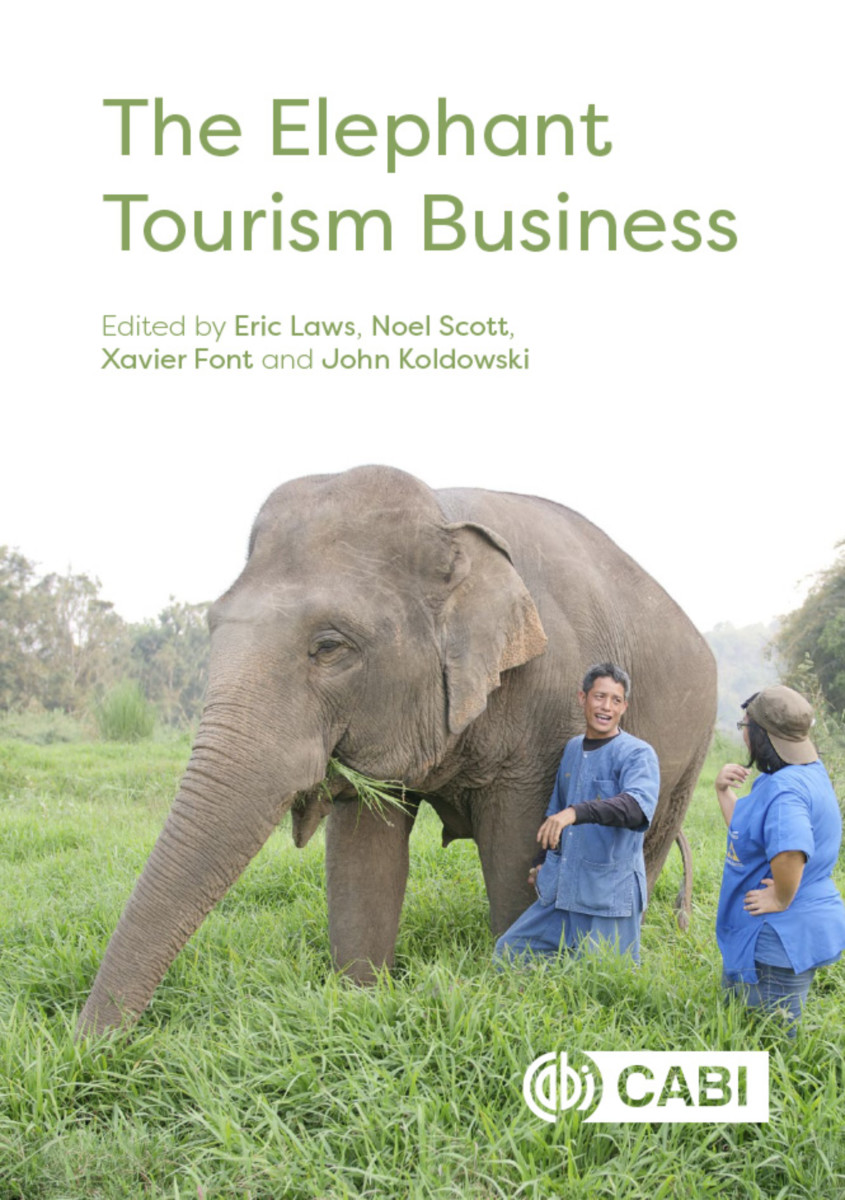The Elephant Tourism Business
- Publisher
CABI - Published
23rd December 2020 - ISBN 9781789245868
- Language English
- Pages 208 pp.
- Size 6" x 9"
Elephant tourism is a growing attraction in many countries across Asia and Africa and is popular with tourists from many origins. As elephants are no longer used in the logging industry in Asia, elephant tourism has grown rapidly, providing the only viable way that elephants and their owners can generate income. Old logging camps were developed into sanctuaries for some elephants, but many other camps were established as entertainment centers, with various welfare issues resulting for the elephants and their mahouts. The profits from elephant tourism in Asia have encouraged African operators to follow a similar business model.
This book draws attention to the need for a comprehensive and rigorous focus on local solutions to improve the welfare of captive elephants and tourists' experiences of elephant tourism, to the benefit of local communities by:
- Critically reviewing recent research into elephant tourism
- Providing contemporary analytical case studies of elephant tourism policy and practice
- Identifying future research priorities
1: Personal Experiences of Elephant Tourism
Eric Laws
Eric Laws has an MPhil from the University of Surrey and a PhD from Griffith University. He has retired from full time academic life, and is Visiting Professor at Leshan Normal University, Sichuan, P.R. China. His research interests include tourism service quality, destination management, crisis management and elephant tourism. Eric's publications include nearly 100 journal articles, book chapters, and conference papers. The Elephant Tourism Business is Eric's twentieth authored or edited book.
Noel Scott
Noel Scott is Adjunct Professor of Tourism Management in the Sustainability Research Centre, University of the Sunshine Coast. His research interests include the study of wildlife tourism, tourism experiences, destination management and marketing, and stakeholder organization. He has over 300 academic articles published including 16 books. He is on the Editorial Board of 10 journals, a Fellow of the Council of Australian University Tourism and Hospitality Educators, and a member of the International Association of China Tourism Scholars.
Xavier Font
Xavier Font is professor of sustainability marketing at the University of Surrey. He researches and develops methods of sustainable tourism production and consumption. He has published widely about sustainable tourism certification, and has consulted on sustainable product development, marketing and communication for UNEP, UNCTAD, UNWTO, IFC, EC, VisitEngland, Fáilte Ireland, WWF and the Travel Foundation amongst others. Since January 2019, he is the new co-editor of the Journal of Sustainable Tourism. He has conducted over 130 courses for more than 2500 businesses on how to market and communicate sustainability, see www.travindy.com
John Koldowski
John Koldowski as a Professor and Foreign Expert within the School of Tourism at Leshan Normal University (LSNU), John continues in his role as a researcher and educator across a number of research areas, including the responsible and sustainable development of mountain-area tourism, rural tourism development and the development of metrics for the better measurement of the impact of tourism in fragile areas and on the intangible assets of tourism. Prior to joining LSNU, John was with the College of Innovation at Thailand's Thammasat University, and a founding member of the Tourism Action Group (TAG) at the same institution. He was also part of the Secretariat for the PATA Thailand Chapter for a number of years, while living and working in Thailand. Before entering academia, he was Deputy CEO of PATA where over a fifteen-year span he came to be regarded as one of the travel and tourism sector's leading analysts. He still maintains his relationship with PATA through his appointment as a special advisor to the CEO.


